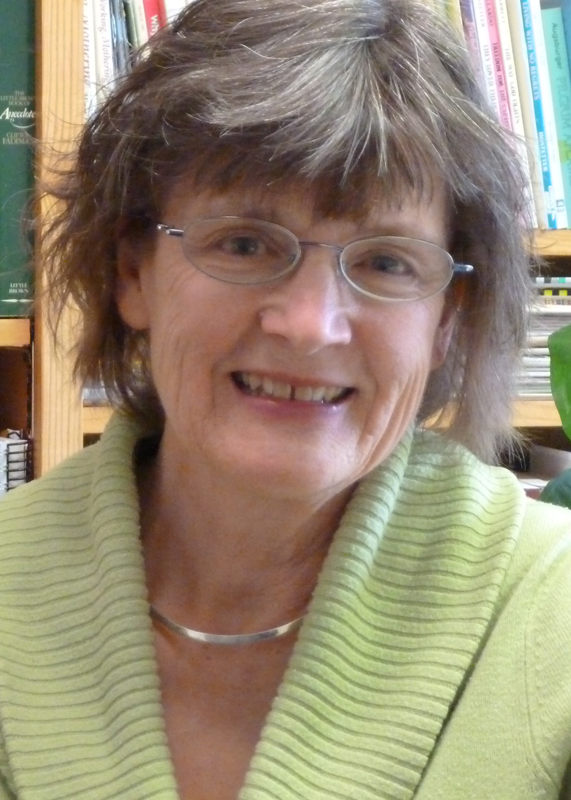Looking at Your Mate with Fresh Eyes
I was waiting with my husband for him to have a procedure in the hospital one day. The nurse had told us what to expect after the procedure, including some forgetfulness in terms of not remembering what he said, what had happened, and so on. She cautioned us not to make any major decisions the rest of the day. Then I left the room to use the bathroom.
When I asked him why he was looking at me so weird, he said, “I was just wondering, if I were a stranger, whether I’d want to go out with you.”
When I came back, my husband looked at me as if he were looking at a stranger.
I thought, oh dear, what medicine did they give him? He’s already forgotten who I am!
When I asked him why he was looking at me so weird, he said, “I was just wondering, if I were a stranger, whether I’d want to go out with you.”
Our dear readers will be happy to know that the answer was yes, on both accounts, his and mine, both now and 39 years ago when we started dating.
But how do you keep things fresh in marriage, especially when your early 20s selves would barely recognize your 60-year-old-plus selves. Our bodies are changing, arthritis is creeping in, hair is graying or disappearing, age spots replace youthful skin and vibrancy.
On May 29, my husband and I celebrated 38 years of marriage. But rather than share advice or tips from our own 38 years which I’ve given often in the past (see below for the little book I created with such), I’ve reopened some of my favorite marriage books to give some “best of” advice from others since this is the month of weddings and anniversaries in so many families. Here are quotes in no particular order (and maybe some inspiration here if you are inclined to make your own anniversary or wedding congratulations cards)
Walt Wangerin: “Love lies a little. Love, the desire to like and to be liked, feels so good when it is satisfied, that it never wants to stop. Therefore, love edits the facts in order to continue to feel good. Love allows me an innocent misperception of my fiancée, while it encourages in her a favorable misperception of myself. If it isn’t blind, it does squint a bit. Love idealizes both of us. This is natural. It isn’t wrong or bad. Listen: marriage is such an intimidating commitment that we need a strong inducement to make it.” (As for Me and My House, Thomas Nelson Publishers, 1987, p. 31)
William Coleman: “Maybe marriage is being studied to death. We have begun to believe that marriage is a science, and all we need is the correct formula or series of formulas and we can make marriage work. At best, marriage is an imperfect art, so we should expect an imperfect marriage. That doesn’t mean we settle for a disastrous relationship, or stop trying to improve what we have. But it does mean we need not drown in the sea of idealism.” (Before I Give You Away, Bethany House Publishers, 1995, pp. 115–16)
Maxine Rock: “‘He reminds me of Daddy.’ ‘She looks just like Mom.’ With few exceptions, this is the reason for the beginning—and perhaps the end—of many marriages. The subconscious cause for getting married is to recapture the unconditional acceptance of early childhood. This is a fantasy, it never materializes again. People who cling desperately to the fantasy and keep trying to force their mates to act like parents will eventually erode the relationship.” (The Marriage Map, Peacehtree Publishers, 1986, p. 23)
Michael J. McManus: “How can millions of marriages heading for the divorce courts be saved? First, we must see that the church itself, is part of [our] divorce problem…. Organized religion is involved in most marriages [weddings], but it is often simply a ‘blessing machine’ that has no more impact on the couple getting married than does a Justice of the Peace…. Be that as it may, the church’s very access to U.S. marriages is also a source of great hope. We all want to save marriage. What if you, as a church member, had a clear vision about how your congregation could do a far more rigorous job to prepare couples for marriage?” (Marriage Savers, Zondervan Publishing House, 1995, p. 20)
Harvey Yoder: “Which causes more stress—going from being single to married, or from being married to having children? Most parents will agree it is the latter. Much as my wife and I looked forward to having a family, nothing fully prepares us for the demands of bearing and rearing children, or for the challenge it created for our marriage. Not that we would want to change anything about having our three, and not that becoming a family made our marriage worse. It simply made it different and more difficult—but ultimately a lot richer and better.” (Lasting Marriage, Herald Press, 2007, p. 81)
What is your best advice for marriage? Send me your thoughts or post them on the Facebook page for “Another Way Newspaper Column.” Send to. Or for my free booklet on marriage, ask for Secrets of Long Marriage. Send your request to the email above, or to Another Way, 1251 Virginia Avenue, Harrisonburg, VA 22802.
Posted 6/5/2014 7:00:00 AM
What do you think?
Post a comment or read others’ thoughts on this article in the Online Conversation, or.




